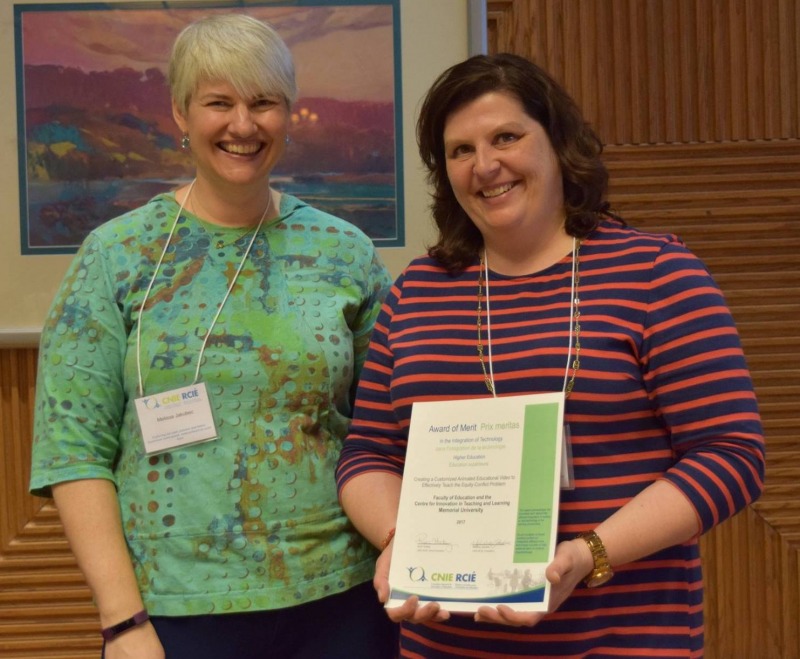National awards recognize technology use in courses

On Thursday, May 18, CITL received two awards at the 2017 Canadian Network for Innovation in Education (CNIE) conference. Both awards recognize innovation and excellence in incorporating technologies into two courses at Memorial.
CITL’s Ruth Hickey, manager of learning development and design, was on hand to accept the awards.
Using Twitter to engage students
Collaborating with the School of Human Kinetics and Recreation (HKR), CITL implemented the use of Twitter in a fitness and wellness course (HKR 1000 - Fitness and Wellness) with the aim to encourage and engage students in dialogue and discussion within the Brightspace (D2L) learning management system.
The online course is a high-enrolment elective for non-HKR students and provides an introduction to the concepts and interactions between fitness, wellness, quality of life and longevity.Twitter was introduced to create engagement and social presence, and facilitate and maintain student-instructor interactions while functioning as an assessment and communication tool.
An innovative Tweet feeder evaluation widget was designed and developed to enhance social presence within the class, as well as to assist in the evaluation and assessment of students' knowledge of the course content. The widget tool brought together information from Twitter and the learning environment, enabling a complete view of Twitter activity without needing to track down and subscribe to feeds of individual students.
Using Twitter through a mobile device as an educational tool allowed students to participate in their learning beyond the borders of the learning environment. Ultimately, the use of Twitter in this course was effective and allowed students to feel more connected to their classmates and the course content.
Animated video brings equity conflict to life
Working with the Faculty of Education on an educational policy course (Education 6205 - Educational Policy: Theory and Practice), CITL was tasked to help create an effective way to teach the complex concept of distributive conflict in educational resource allocation using a case study approach.
Equity is the study of who gets what, when and under what circumstances. Because education authorities are limited in the amount of available resources, often the distribution of those resources is a contested process. When there are finite resources, conflict arises when the goals of one group are in conflict with another. Since there are so many variations in the kinds of distributive conflicts that can arise, this is a very difficult policy concept to teach.
To address the problem, CITL adapted print material and used animation to produce a video that captures the ideas around equity in resource allocation and bring them to life. The characters featured in the video were developed to be neither gender nor racial specific. This was to ensure they could be used in all scenarios that were used as examples of equity conflict.
Ultimately the success of the video came from taking a relatively dry and multifaceted topic of equity and presenting it in a way that provided students with multiple distributive conflicts. The light-hearted approach of the animation helped students enjoy the video while still learning the concepts of equity conflict.